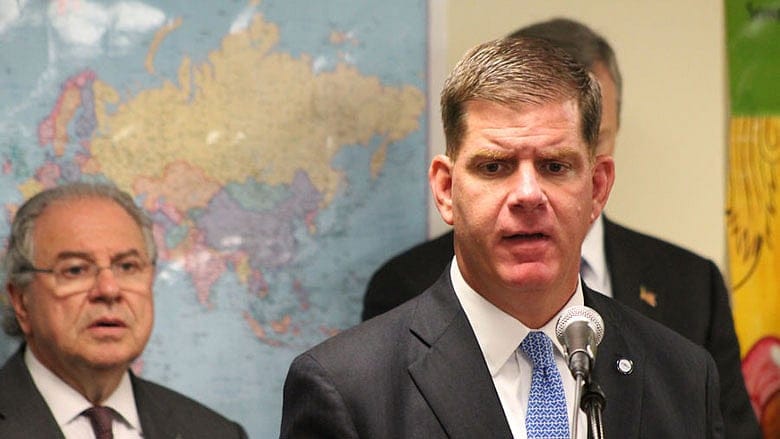Pols outline opposition to commercial marijuana at campaign event

BOSTON — At a press conference Friday attended by some of the most powerful state politicians allied against marijuana legalization, House Speaker Robert DeLeo said he ignored his staff's advice to keep mum on his opposition to the ballot referendum.
"Sometimes I may take my time in terms of deciding upon an issue. I want to read a lot. I want to talk to a lot of different folks before making the final decision. This really wasn't one of those issues," DeLeo said. He said his staff advised him to say "you're going to look into it" when asked about the referendum, but "I didn't say that at all. I knew very, very quickly what my answer was going to be."

